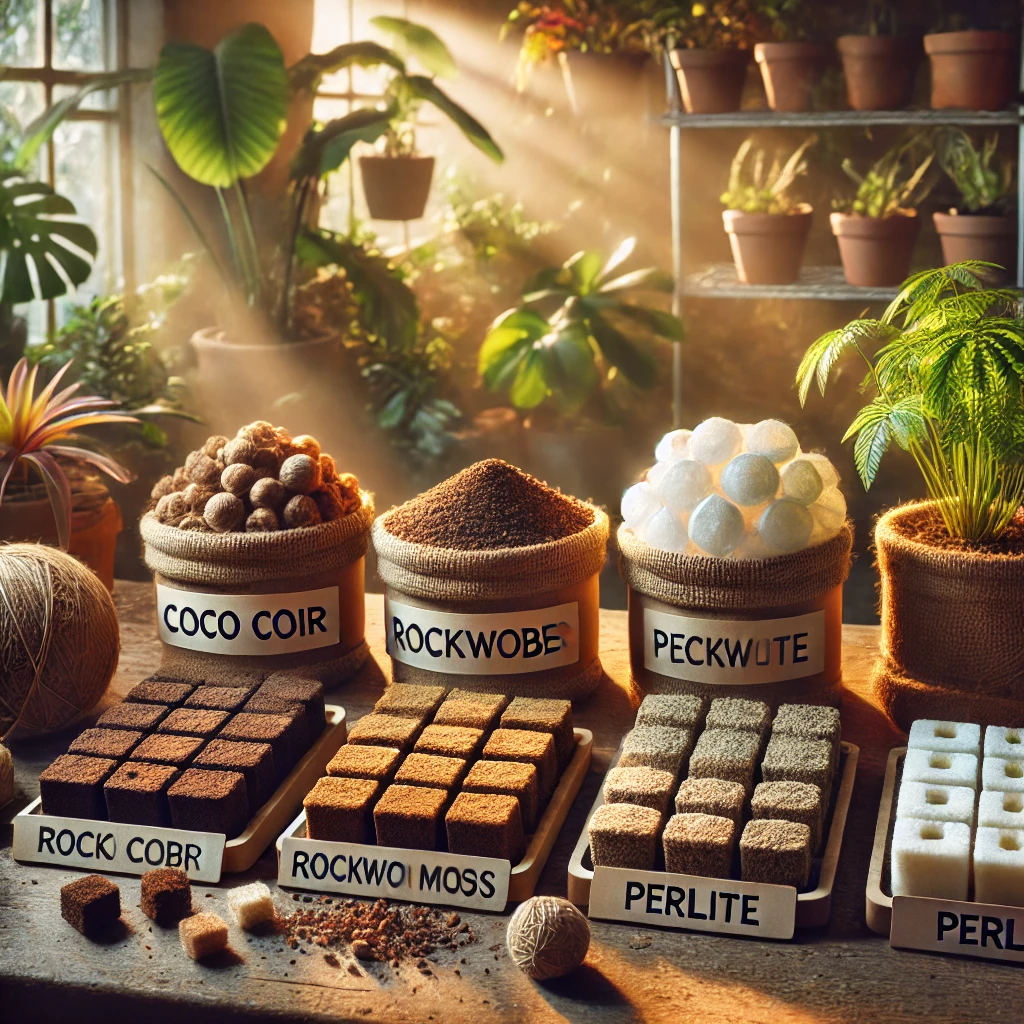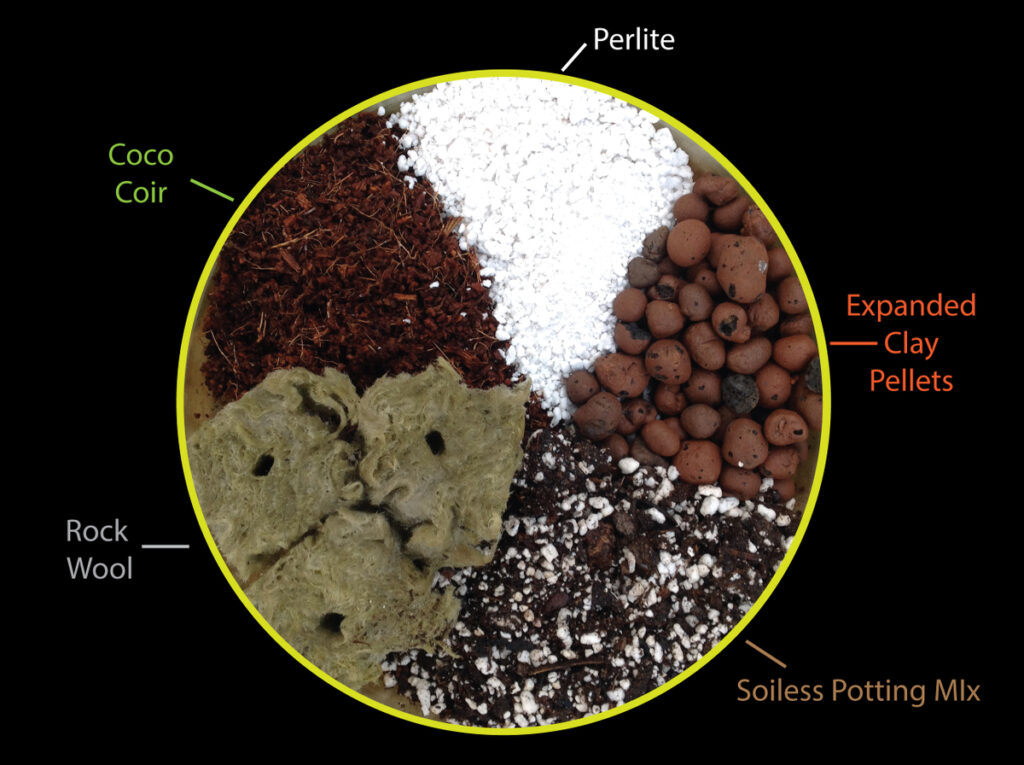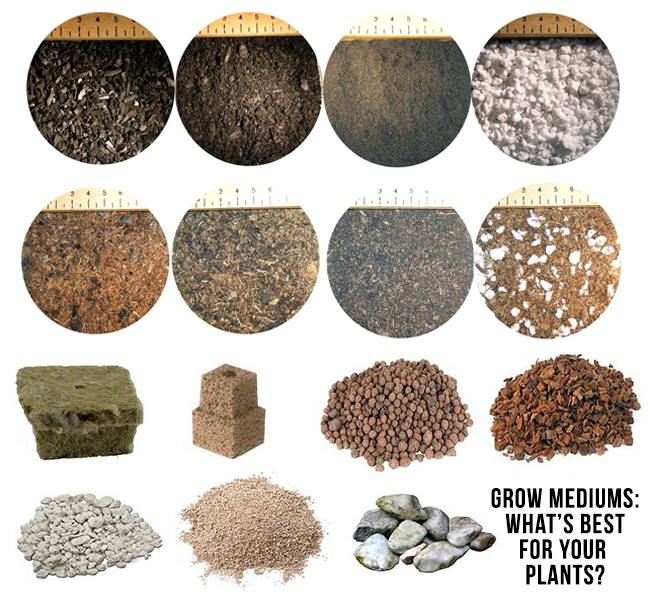Table of Contents
The right organic growing medium for your indoor garden
Finding the right organic growing medium for your indoor garden is essential for cultivating healthy, resilient plants. When growing plants indoors, particularly in hydroponic setups, choosing a medium that supports optimal root health, moisture retention, and nutrient delivery is key. Here, we’ll explore popular organic growing mediums like coco coir, rockwool, and peat moss, highlighting their unique benefits and how they fit into different hydroponic systems.

Top Organic Growing Mediums
1. Coco Coir: Sustainable and Water-Retentive
Coco coir is derived from coconut husks and is one of the most eco-friendly, sustainable growing mediums available for indoor gardening. Known for its excellent water retention and aeration properties, coco coir provides a stable environment for root growth while minimizing the risk of overwatering.
Benefits of Coco Coir:
- Holds water efficiently, reducing the need for frequent watering.
- Provides excellent drainage, making it ideal for hydroponic setups.
- Naturally resistant to pests and mold, helping protect plant roots.
- Suitable for a wide range of plants, including herbs, vegetables, and flowering plants.
Best Use in Hydroponics: Coco coir works exceptionally well in drip irrigation and ebb-and-flow systems, where water and nutrient delivery are carefully managed. It is versatile enough to be mixed with other mediums like perlite for improved aeration.
2. Rockwool: Superior Water-Holding Capacity and Root Support
Rockwool is a mineral-based medium created by heating volcanic rock, basalt, and limestone. Its fibrous texture allows for superior water-holding capacity, making it a favorite among hydroponic growers. Rockwool is pH-neutral, but it requires pH adjustment before use to support optimal nutrient absorption.
Benefits of Rockwool:
- Excellent water retention, ideal for plants with high moisture needs.
- Supports root development by providing a stable structure.
- pH-neutral, allowing for precise pH control in hydroponic systems.
- Ideal for hydroponic setups where consistent moisture levels are needed.
Best Use in Hydroponics: Rockwool is commonly used in NFT (Nutrient Film Technique) and aeroponics. Its water-holding capacity supports nutrient flow to roots, making it perfect for plants like leafy greens and herbs.
3. Peat Moss: Nutrient-Rich and Moisture-Retentive
Peat moss is a well-known organic growing medium made from partially decomposed sphagnum moss. It offers an acidic pH, making it ideal for plants that prefer lower pH levels. Peat moss is lightweight, nutrient-rich, and retains water effectively, but it often benefits from being combined with other aeration-improving materials, such as perlite.
Benefits of Peat Moss:
- Retains moisture, providing a stable environment for plant roots.
- Adds essential organic matter to support nutrient-rich plant growth.
- Naturally acidic, which is beneficial for acid-loving plants.
- Helps maintain a light, fluffy texture to support root aeration.
Best Use in Hydroponics: Peat moss works best in wick systems or as a starter medium for seeds. Because of its water retention and nutrient content, peat moss is commonly mixed with coco coir or vermiculite in container gardening and soil-based hydroponics.
4. Perlite: Lightweight, Aerated Support
While perlite isn’t strictly organic, it’s often used alongside organic mediums to improve aeration and drainage. Perlite is a lightweight volcanic rock that expands when heated, creating a porous structure that promotes excellent airflow. It’s a fantastic addition to heavier mediums, like coco coir or peat moss, to keep roots healthy.
Benefits of Perlite:
- Adds aeration to dense organic mediums, preventing root rot.
- Lightweight, making it easy to mix with other growing substrates.
- Neutral pH, allowing plants to absorb nutrients without interference.
- Ideal for both hydroponic and traditional soil setups.
Best Use in Hydroponics: Perlite is often added to drip irrigation systems and ebb-and-flow setups to improve drainage and airflow. It’s also commonly mixed with coco coir to create a balanced growing medium that offers both moisture retention and aeration.
5. Vermiculite: Moisture-Retentive and Nutrient-Friendly
Vermiculite is another popular additive for indoor gardens and hydroponic systems. Derived from hydrated silicate minerals, vermiculite helps retain moisture while releasing it slowly, providing plants with a consistent source of hydration. Like perlite, vermiculite is often combined with other organic mediums.
Benefits of Vermiculite:
- Holds both water and nutrients, slowly releasing them to plant roots.
- Helps improve soil structure and aeration when mixed with other mediums.
- Non-toxic and pH-neutral, making it a safe choice for various plant types.
- Ideal for delicate plants that require steady moisture and nutrient delivery.
Best Use in Hydroponics: Vermiculite is suitable for wick systems and flood-and-drain systems, as it helps maintain moisture and supports nutrient absorption.

Choosing the Right Organic Growing Medium for Your Indoor Garden
Each of these organic growing mediums offers unique benefits that support different hydroponic setups and plant needs. Coco coir and rockwool are excellent for moisture management, while peat moss and vermiculite provide nutrient support. Perlite and vermiculite work well as additives to balance aeration and drainage, ensuring that your plants’ roots stay healthy and oxygenated.
Visit Grow Big Hydro for Quality Organic Growing Mediums
At Grow Big Hydro, we offer a wide selection of organic growing mediums suited for indoor gardens and hydroponic systems. Whether you’re a beginner or an experienced grower, our knowledgeable team can help you find the best medium for your unique gardening setup. Visit us today or call us at (815) 637-4769 to learn more about how the right medium can help your indoor garden thrive.


